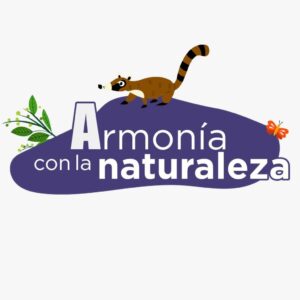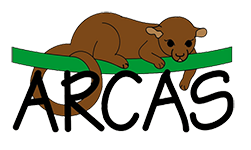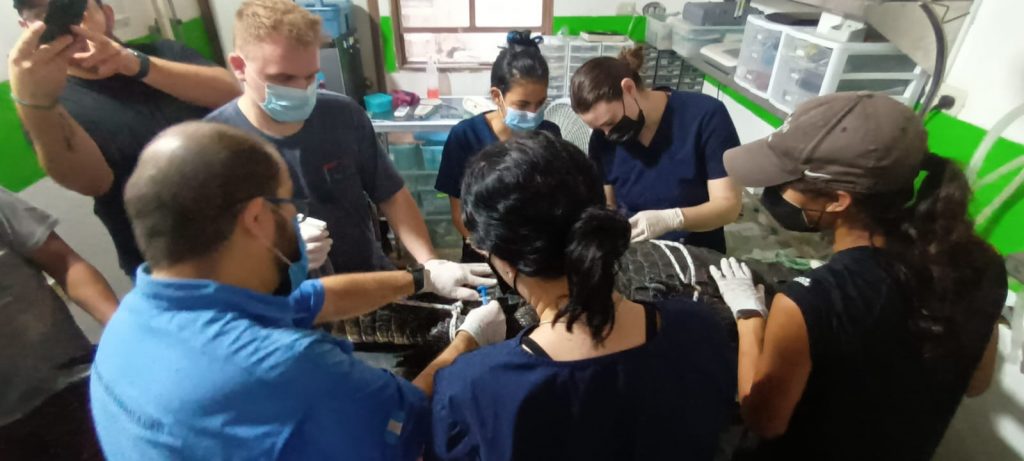A reptile commonly known as the Morelet’s crocodile, scientifically named Crocodylus moreletii, was rescued by CONAP Petén personnel after residents of El Remate in Flores, Petén, captured it out of collective fear. The institution’s staff intervened to prevent harm or death to the wild specimen.
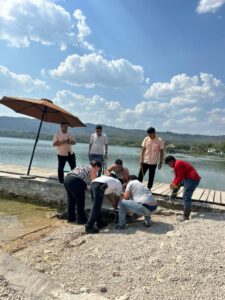
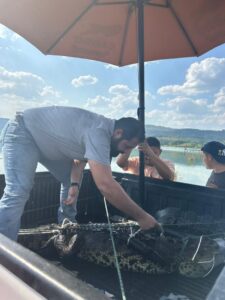
The crocodile was transported to the ARCAS Rescue Center, where it underwent necessary evaluations according to protocol, including X-rays revealing bullet fragments estimated to be around a year old inside the crocodile.
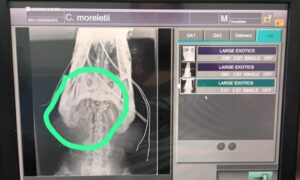
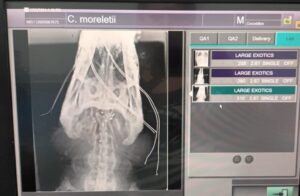
The rescued crocodile is an adult male measuring 232 centimeters and is in excellent condition despite the adversities it has faced. The crocodile will remain under observation and will later be relocated to an area where there are no nearby settlements.
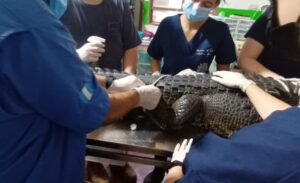
It’s important to clarify that removing them from the lake is NOT AN OPTION; Lake Petén Itzá needs them as part of its ecosystem. It’s up to us to learn to coexist with wild species.
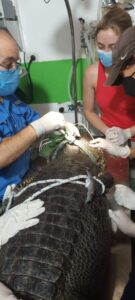

Concerningly, there are fewer areas for crocodiles to inhabit in the lake due to advancing construction and docks. Natural populations are congregating in less disturbed areas, and overfishing and hunting of natural prey can also affect their behavior.
We recommend that people avoid swimming in areas of the lake with abundant vegetation, avoid swimming at night (when crocodiles are active and hunting), refrain from overfishing and using fish lines, and if visiting the lake with children, maintain constant supervision and avoid areas with excessive vegetation.
CONAP, with support from ARCAS, CECON, MANCOMUNIDAD, INGUAT, Gringo Perdido Hotels, the Guatemala Crocodile Association, and others, continuously conducts awareness campaigns on the importance of wildlife and these crocodile specimens. Recommendations on how to act in the presence of crocodiles are disseminated through door-to-door visits, social media, posters, and other activities.
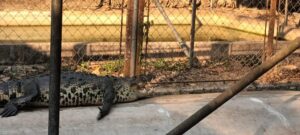
Upcoming awareness workshops will also be held in the coming days.
It’s important to note that we cannot confirm whether the rescued specimen was involved in the attack; there is no way to identify it definitively. We urge people to follow recommendations to avoid incidents.
Let’s respect, value, and live in harmony with nature.
“Do not disturb them; they are in their habitat. We have invaded their home.”
Read the scientific note on crocodiles
Download educational posters
https://drive.google.com/drive/folders/1O7GE65cLWdDc5-jjrkASimYj0GG63WH3
